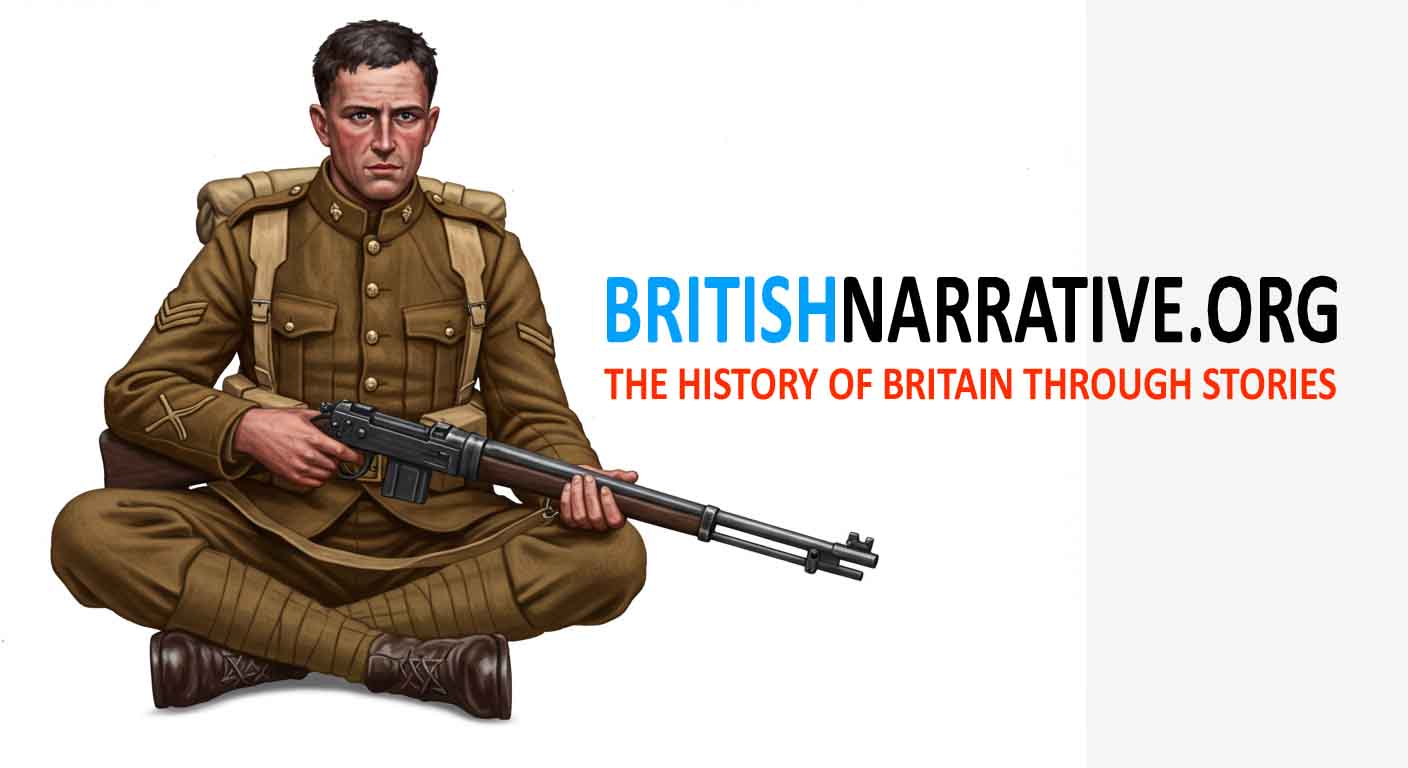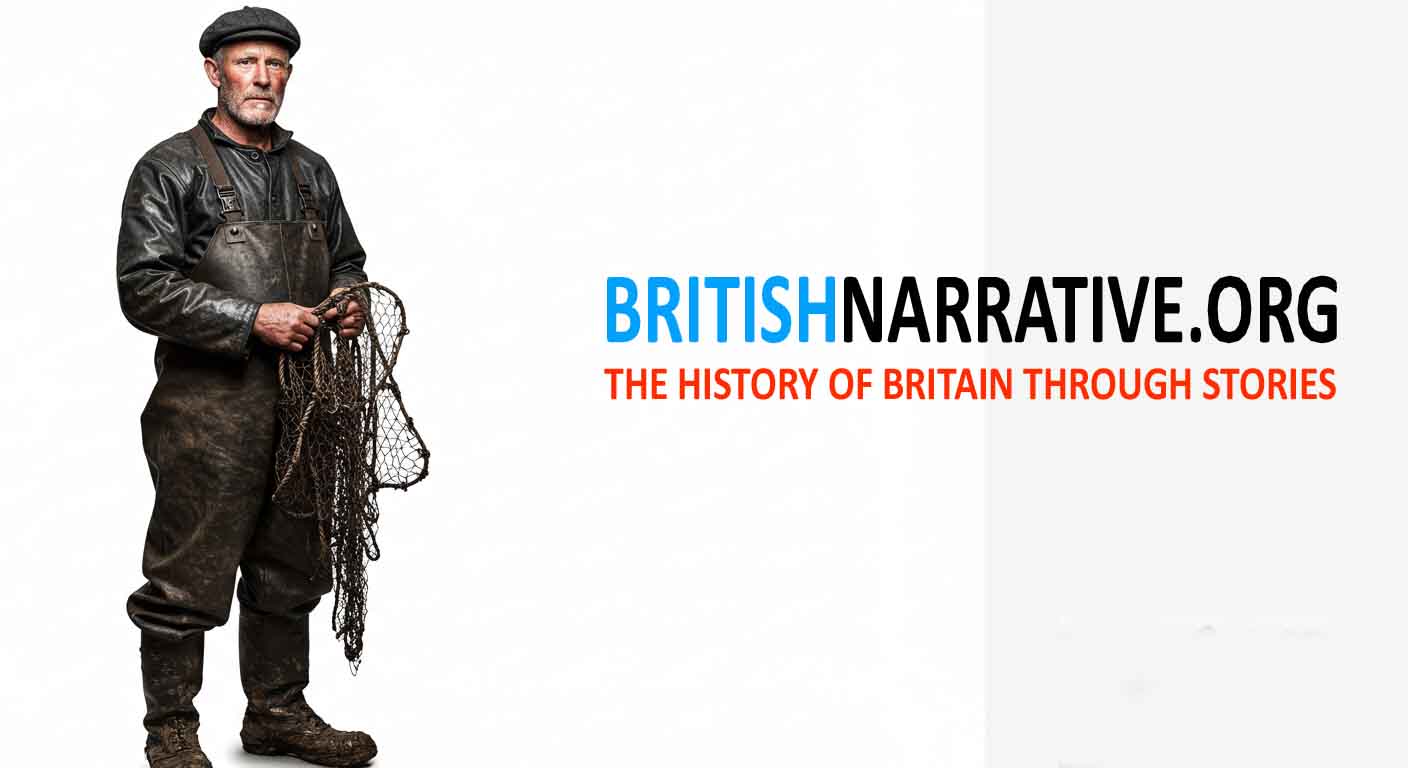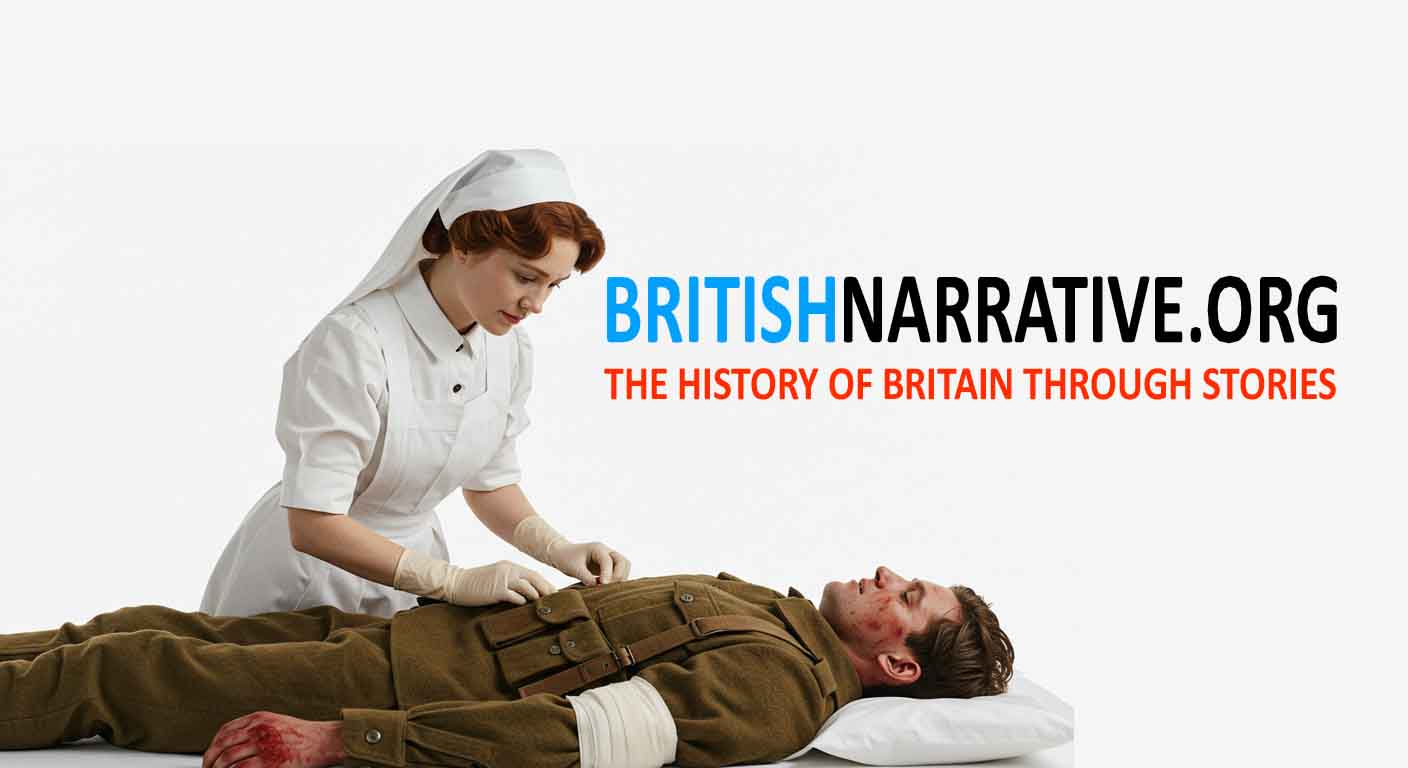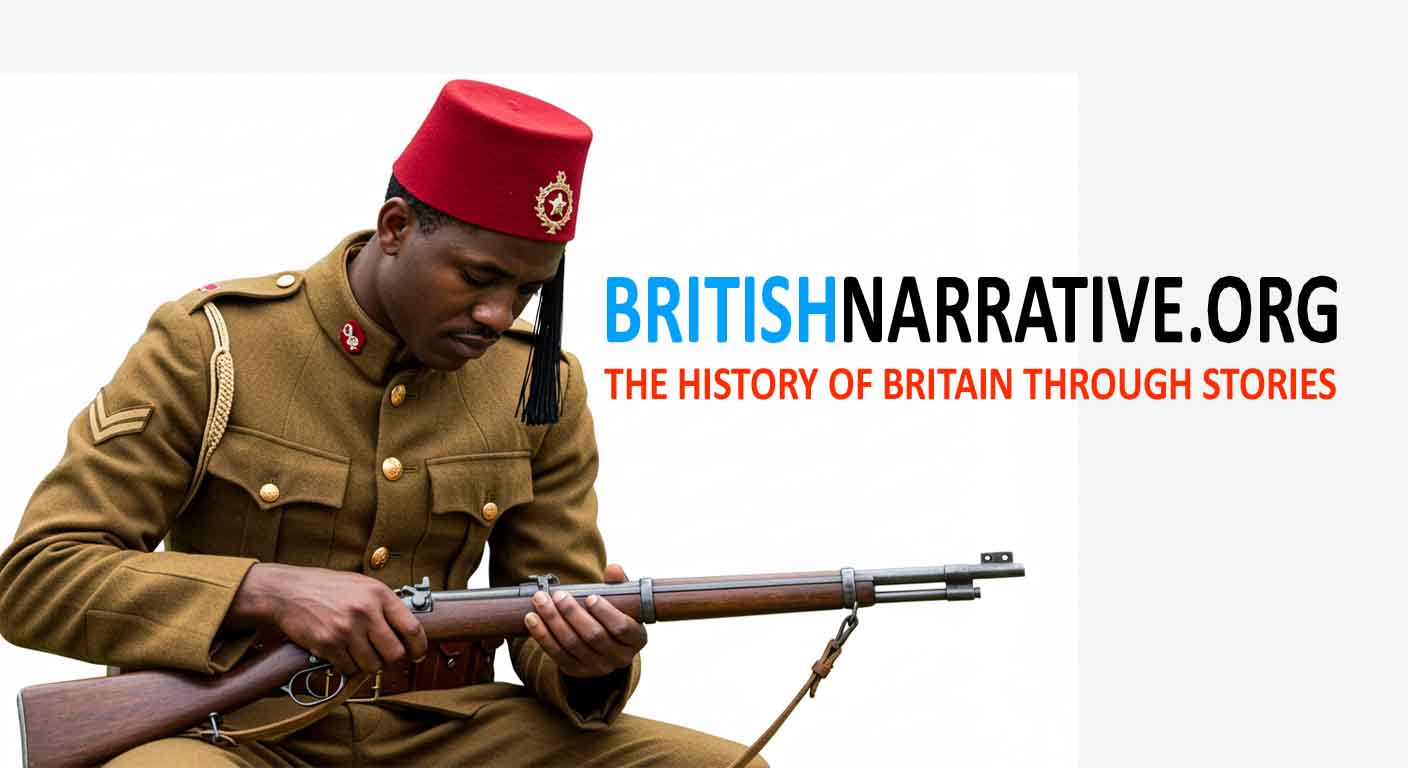Name: James Clarke
Regiment: 1st Battalion, Lancashire Fusiliers (part of the 29th Division)
Service Number: 12476
Enlistment Date: September 1914
Place of Birth: Manchester, England, 1886
Bio: Born and raised in the bustling industrial city of Manchester, James Clarke was a young man working in the factories when the Great War erupted. Driven by a fierce sense of patriotism and the widespread call to arms, he eagerly enlisted in the British Army in late 1914. Allocated to the renowned Lancashire Fusiliers, a regiment deeply rooted in his home county, James quickly adapted to military life, forming strong bonds with his comrades from across Lancashire and beyond. He served through the initial rigorous training and the early, gruelling years on the Western Front, experiencing the harsh realities of trench warfare, the ever-present threat of artillery, and the constant fear of the unknown. His courage and resilience would be severely tested in the summer of 1916, when his battalion was ordered to advance on the first day of the Battle of the Somme.
The whistle, when it finally blew, was a thin, reedy shriek lost in the vast, roaring symphony of the guns. My heart hammered against my ribs, a frantic drumbeat demanding to be heard above the incessant hammering of the artillery. It was 7:30 AM on July 1st, 1916. The sun, a pale, indifferent orb, was already climbing, promising a hot day. A day that would, for many, be their last.
My name is James Clarke, and I was a private in the 1st Battalion, Lancashire Fusiliers. I was twenty-nine years old, born and bred in Manchester, a long, long way from the cobbled streets and smoky mills I knew. I’d joined up in 1914, like so many lads from the factories and docks, full of the spirit of King and Country. Two years on the Western Front had stripped away any illusions of glory, replacing them with a grim determination to simply survive.
We’d been told for days that this was it. The ‘Big Push’. The bombardment had been relentless, a week-long cacophony that had shaken the very earth. The officers, their faces grim beneath their steel helmets, assured us the German wire would be obliterated, their trenches pulverized. We just had to walk across, clean up the remnants, and the war, or at least a significant part of it, would be won. We wanted to believe them. We truly did.
My stomach was a knot of ice, despite the rising heat. Beside me, young Billy Davies, barely nineteen, clutched his rifle, his knuckles white. His breath hitched in his throat. “James,” he whispered, his voice trembling, “do you think… do you think they’re all gone?”
I forced a smile, though it felt like a grimace. “Aye, lad. The old hun won’t know what hit ‘em. This’ll be a walkover.” I lied. We all did. It was the only way to keep the fear from swallowing us whole.
The 1st Lancashires were part of the 29th Division, the famed “Immortal 29th,” and we were to attack from the village of Beaumont-Hamel, towards a German strongpoint known as the ‘Redan Ridge’. Our trench, ‘Suffolk Lane,’ was a cramped, muddy ditch, choked with men, gear, and the stench of fear and stale sweat.
When the whistle blew, a wave of humanity surged over the parapet. We were burdened with equipment – rifles, bayonets, entrenching tools, gas masks, sandbags, water bottles, emergency rations. Each man carried almost 70 pounds. It wasn’t a charge; it was a slow, agonizing trudge through the churned-up earth of No Man’s Land.
The ground was a mess of shell holes, tangles of barbed wire from our own side, and the scattered, unidentifiable debris of what was once a field. The sun was fully up now, beating down, and sweat was already stinging my eyes. I kept my head down, my eyes fixed on the boots of the man in front of me – old ‘Pop’ Jenkins, a grizzled veteran from Rochdale. He had a limp, but he moved with a steady, relentless pace.
Then the sound changed. The roar of our own guns began to lessen, replaced by a new, more terrifying symphony. The stuttering rhythm of German machine guns. The high-pitched whine of incoming shells. They hadn’t been pulverized. They were there. And they were waiting.
The first few men went down silently, tripping over nothing, then lying still. Then the screams started. A man to my left suddenly spun, clutching his chest, a dark stain blossoming on his khaki tunic. He fell, mouth open in a silent cry. The barbed wire, supposedly cut, was still there, thick and tangled, an impassable barrier. Men were piling up, desperate to find a way through, becoming easy targets.
“Get through that wire, lads!” a voice roared, our company sergeant, Sergeant Miller. He was waving his revolver, urging us on. But it was like trying to push water uphill. The wire was intact, thick as a man’s wrist in places, reinforced with iron stakes.
I saw a flash of movement to my right – a German machine gun nest, spitting fire from a crater. The bullets ripped through the air, sounding like angry bees. Men were falling all around me, a sickening harvest. My ears were ringing, my mouth was dry, and the taste of dust and terror filled my throat.
I heard Billy Davies scream. I turned, my heart leaping into my mouth. He was lying sprawled in a shell hole, his arm bent at an unnatural angle, blood welling through his tunic. “My arm, James! My arm!” he sobbed, his eyes wide with shock and pain.
My training kicked in. Or maybe it was just instinct, or the desperate need to do something. I dropped to my knees beside him, pulling a field dressing from my pack. The machine gun fire intensified, tearing up the earth around us. Dirt rained down on my back.
“Hold still, lad,” I muttered, fumbling with the bandage. His face was pale, streaked with mud and tears. “It’s just a scratch, you’ll be fine. We’ll get you back.” I knew it wasn’t just a scratch.
As I worked, a shell landed dangerously close, showering us with debris. The concussion was immense, knocking the breath from my lungs. For a moment, everything went white, then black. When my vision cleared, the world seemed to tilt. Billy was unconscious, his head lolled to one side. The smell of sulphur filled the air.
I checked him again. He was breathing, but barely. Getting him back was impossible. The ground was a slaughterhouse, men cut down before they even reached the first line of German wire. The cries of the wounded mingled with the incessant rattle of the guns. Our attack was being torn to shreds.
I crawled to the lip of the shell hole, peering through the smoke and desolation. The line of charging men had evaporated. Only scattered individuals remained, huddling in craters, desperately trying to find cover. Our officers, those who were still standing, were shouting, trying to rally us, but their voices were drowned in the inferno.
I saw Captain Henderson, a brave, kind man who always remembered our names, stumble and fall, clutching his stomach. He tried to get up, but collapsed again. No one could reach him.
The decision was clear. We couldn’t advance. Not here. Not now. The Germans were too strong, their defenses unbreached. I knew what I had to do. I pulled Billy deeper into the shell hole, trying to make him as comfortable as possible. His eyes fluttered open for a moment, glazed with pain. “Mom…” he whispered, then slipped back into unconsciousness.
I took off my tin helmet, placing it over his head for a small measure of protection. Then I began to crawl, slowly, painstakingly, back towards our own lines. The return journey was arguably more terrifying. The Germans were still firing, aiming at anything that moved. Every few feet, I would freeze, pressing myself into the mud, listening to the whistle of the bullets.
I saw bodies everywhere, lying in grotesque poses. Some were still, some twitched. I saw a man, his leg almost severed, trying to crawl with just his arms, leaving a trail of blood in the mud. The cries of the wounded, desperate and chilling, haunted me. There was nothing I could do for them. Nothing.
It took what felt like an eternity, but eventually, after scraping my knees raw and tasting mud more times than I cared to count, I tumbled back into the relative safety of Suffolk Lane. The trench was a scene of chaos. Stretcher bearers were trying to bring in the wounded, but there were too many. Commanders were trying to assess the damage, their faces etched with horror.
“Clarke! Where’s your rifle, man?” a voice barked. It was Sergeant Miller, his face blackened with smoke and sweat, his uniform torn.
“Left it, Sarge,” I gasped, my chest heaving. “Had to get back. Billy Davies… he’s hit bad, sir. In a shell hole, maybe 50 yards out from the wire.”
Miller’s face softened for a fraction of a second, a flicker of the humanity that this war tried so desperately to extinguish. He simply nodded, his gaze distant. He knew what that meant. Another boy lost, probably.
The rest of the day was a blur of shelling, of waiting, of the constant, agonizing sound of distant cries. The ‘Big Push’ had failed. For the 1st Lancashire Fusiliers, and for so many other British battalions that day, it had been a catastrophe. We had suffered horrendous casualties, hundreds of men gone in a matter of hours.
As night fell, a new kind of terror descended – the cries of the wounded in No Man’s Land, drifting across the darkness. You couldn’t go out. The German machine guns would open up at the slightest sound. Their calls for help, for water, for their mothers, slowly faded as the hours passed, until by morning, there was only a chilling silence.
I survived the first day of the Somme. Many did not. Billy Davies never made it back. His name, like so many others, would be etched on a memorial far from the peaceful fields of home. The Somme taught me a truth far grimmer than any drill sergeant could impart: that war was not glory, but a meat grinder, where men were fed into the jaws of death with terrifying efficiency. And as I lay in the cold, muddy trench that night, listening to the distant rumble of the guns, I knew that a part of me, the hopeful, adventurous part, had died out there in the wire, on the first day of July, 1916. I was alive, yes, but forever changed by the horror of the Somme.



